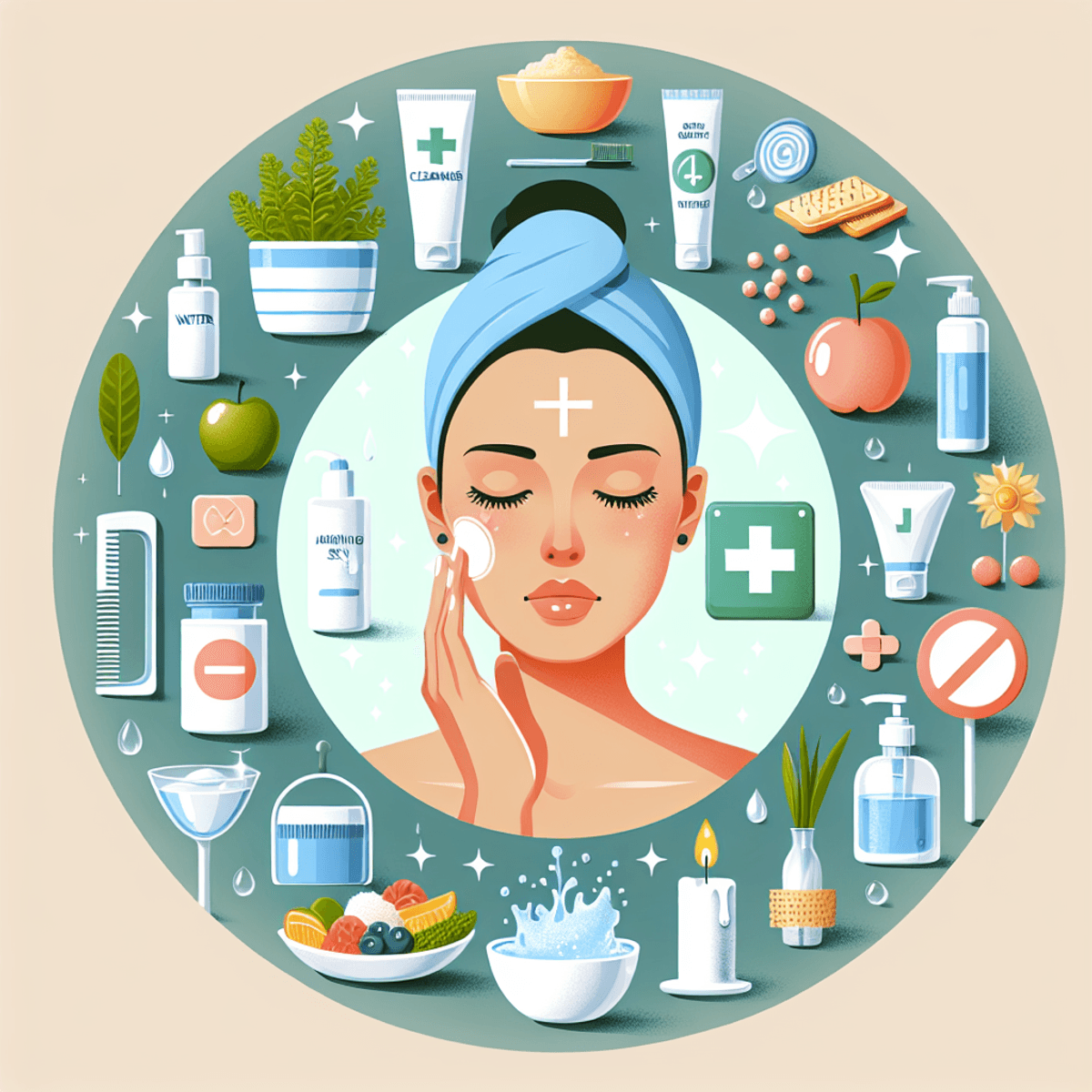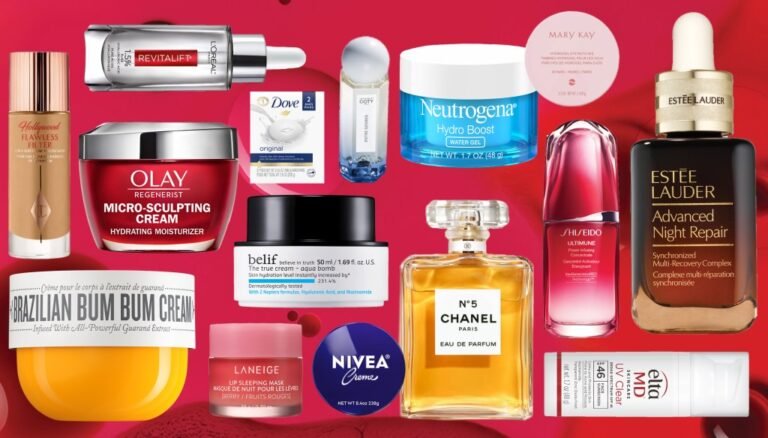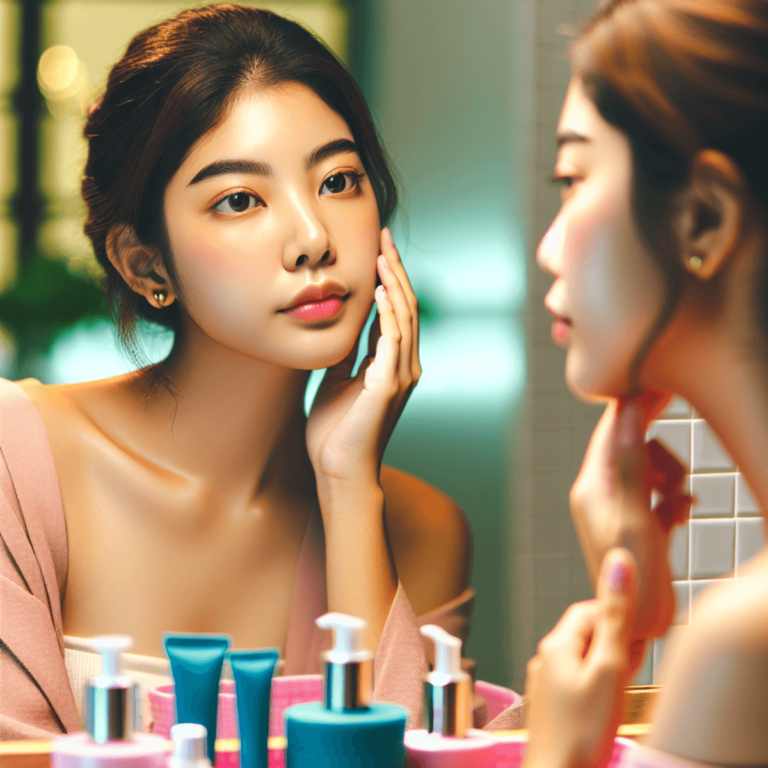How to Prevent Acne & Pimples: 10 Tips to Avoid Breakouts

Introduction
Dealing with acne and pimples can be a frustrating challenge for many. Preventing these breakouts not only improves your skin’s appearance but also boosts your confidence and overall well-being. A proactive approach to skincare can significantly reduce the occurrence of acne and help you maintain a clear complexion.
This article will guide you through effective strategies to keep your skin healthy:
- Effective Cleansing Routine
- Moisturizing for Balanced Skin
- Utilizing Topical Treatments
- Avoiding Oil-Based Products and Comedogenic Cosmetics
- Dietary Considerations for Clearer Skin
- The Importance of Sun Protection in Acne Management
- Hair Care Practices That Won’t Clog Your Pores
- Stress Management Techniques To Keep Breakouts at Bay
- Avoiding Picking or Popping Pimples
- Consulting a Dermatologist When All Else Fails
By integrating these tips into your daily routine, you can effectively prevent acne and achieve lasting skin health.
Understanding Acne and Pimples
What is Acne?
Acne is a common skin condition that occurs when hair follicles become clogged with oil and dead skin cells. It shows up in different ways, such as:
- Whiteheads: Closed plugged pores.
- Blackheads: Open plugged pores.
- Papules: Small red, tender bumps.
- Pustules: Pus-filled lesions.
- Nodules: Large, solid, painful lumps beneath the surface of the skin.
- Cystic lesions: Painful, pus-filled lumps beneath the surface of the skin.
Factors Contributing to Acne
Several factors contribute to the development of acne:
- Hormonal Changes: Fluctuations in hormones, especially during puberty, menstruation, or pregnancy, can increase oil production, leading to acne.
- Genetics: Family history plays a significant role; if your parents had acne, you might be more prone to developing it.
- Diet: Certain foods, particularly those high in sugar and dairy products, have been linked to acne breakouts.
- Stress: Increased stress levels can lead to hormonal imbalances that worsen acne.
- Environmental Factors: Pollution and humidity can clog pores and lead to breakouts.
How Different Skin Types React to Acne
Understanding how different skin types react to acne can help tailor your skincare routine:
Oily Skin
- More prone to acne due to excess sebum production.
- Requires products that control oil but do not over-dry the skin.
Dry Skin
- Less common but can still experience breakouts.
- Needs gentle cleansing and heavy moisturization to prevent irritation.
Combination Skin
- Exhibits both oily and dry areas; often oily in the T-zone (forehead, nose, chin) and dry elsewhere.
- Benefits from a balanced approach that addresses both oil control and hydration.
Sensitive Skin
- Easily irritated by acne treatments or harsh skincare products.
- Requires hypoallergenic and gentle formulations.
Normal Skin
- Least likely to develop severe acne but still susceptible under certain conditions like hormonal changes or poor hygiene practices.
- Can maintain clear skin with a consistent yet straightforward skincare routine.
Understanding these factors allows for a better approach in preventing and managing acne effectively.
1. Effective Cleansing Routine
Daily cleansing is essential in the fight against breakouts. Removing excess oil, sweat, and dirt from your face can significantly reduce the occurrence of acne.
Why Cleansing is Important for Preventing Breakouts
Cleansing ensures that your skin remains free from impurities that can clog pores and lead to pimples. Consistent cleansing helps maintain clear skin by:
- Removing dirt and excess oil: This prevents the buildup that can result in clogged pores.
- Washing away dead skin cells: Exfoliating mildly through cleansing helps prevent dead cells from blocking pores.
- Preparing your skin for other treatments: Clean skin absorbs topical treatments more effectively, enhancing their benefits.
How Often and How to Wash Your Face
To effectively manage acne, wash your face twice daily—once in the morning and once before bed. Follow these steps for optimal results:
- Use lukewarm water: Hot water can strip your skin of its natural oils, leading to dryness and irritation.
- Apply a mild cleanser: Choose products specifically designed for your skin type to avoid irritation.
- Gently massage the cleanser into your skin: Use circular motions with your fingertips.
- Rinse thoroughly: Ensure no residue remains, as leftover cleanser can clog pores.
- Pat dry with a clean towel: Avoid rubbing, which can irritate the skin.
Picking the Right Mild Cleanser for Your Skin Type
Selecting an appropriate cleanser is crucial. Here are some tips:
- For oily skin: Opt for a gel-based or foaming cleanser to control excess oil without over-drying.
- For dry or sensitive skin: Use a hydrating, creamy cleanser that doesn’t strip away natural moisture.
- For combination skin: Find a balanced formula that addresses both oily and dry areas without causing imbalance.
Using a mild cleanser tailored to your specific needs can make a significant difference in preventing breakouts. Look for labels indicating “non-comedogenic” to ensure the product won’t clog your pores.
2. Moisturizing for Balanced Skin
Moisturizing plays a crucial role in preventing breakouts. Hydrated skin maintains a balanced oil production, reducing the likelihood of clogged pores and acne formation.
Benefits of Non-Comedogenic Products
Non-comedogenic moisturizers are specifically formulated to avoid clogging pores. By using these products, you can maintain healthy skin without contributing to acne. Key benefits include:
- Preventing pore blockages: Non-comedogenic products minimize the risk of clogged pores, a common cause of breakouts.
- Balancing oil levels: Proper hydration helps regulate your skin’s natural oil production, decreasing excess sebum that can lead to acne.
Selecting the Right Moisturizer
Choosing the appropriate moisturizer for your skin type is essential for maintaining clear skin. Here are some tips:
- Identify your skin type: Determine whether you have oily, dry, combination, or sensitive skin.
- Look for key ingredients: For oily or acne-prone skin, opt for lightweight, water-based moisturizers containing ingredients like hyaluronic acid or glycerin.
- Check labels: Ensure the product is labeled as non-comedogenic to avoid potential pore-clogging ingredients.
- SPF inclusion: Consider a moisturizer with built-in SPF to protect against sun damage without needing multiple products.
Incorporating these practices into your skincare routine helps maintain balanced and clear skin, supporting your efforts on how to prevent acne & pimples.
3. Using Topical Treatments
Topical treatments can be a game-changer in your fight against acne. Over-the-counter (OTC) options are often the first line of defense and include ingredients like benzoyl peroxide and salicylic acid.
Over-the-Counter Options
Benzoyl Peroxide
This powerful ingredient works by killing bacteria that cause acne. It also helps remove excess oil and dead skin cells, which can clog pores. Available in various concentrations, it can be found in creams, gels, and face washes.
Salicylic Acid
Known for its ability to exfoliate the skin, salicylic acid penetrates the pores to dissolve debris and prevent future clogs. It’s particularly effective for those with blackheads and whiteheads.
Consistency is Key
When using topical treatments, it’s important to be consistent. Regular application as directed ensures that you’re continuously targeting the root causes of breakouts. Skipping days or applying sporadically reduces effectiveness, leading to prolonged acne issues.
When OTC Treatments Aren’t Enough
There might come a time when over-the-counter treatments aren’t enough. Persistent or severe acne may require stronger solutions:
Prescription Options
Dermatologists can prescribe topical retinoids, which promote cell turnover and prevent clogged pores. Antibiotic creams or gels may also be recommended to reduce inflammation and bacterial growth.
Consulting a Dermatologist
When considering prescription treatments, consulting a dermatologist is essential. They can tailor a regimen suited to your specific skin type and severity of acne, ensuring optimal results without unnecessary side effects.
Maintaining a consistent application routine while exploring stronger options when needed creates a balanced approach in tackling acne through topical treatments.
4. Avoiding Oil-Based Products and Comedogenic Cosmetics
Understanding how certain ingredients can clog pores is crucial for preventing acne breakouts. Comedogenic substances block hair follicles, leading to the formation of blackheads and pimples. Ingredients like mineral oil, lanolin, and certain types of alcohols are common culprits.
Common Oil-Based Products to Avoid
- Heavy Creams: Often contain oils that can clog pores.
- Oil-Based Makeup: Foundations and concealers with oils can worsen acne.
- Sunscreens with Oils: Some sunblocks use oils that can lead to breakouts.
- Hair Products: Shampoos, conditioners, and styling products with oils that may transfer to your face.
Recommendations for Non-Comedogenic Alternatives
Switching to non-comedogenic products helps maintain clear skin:
- Non-Comedogenic Moisturizers: Look for labels specifying they do not clog pores.
- Oil-Free Makeup: Opt for water-based or mineral makeup.
- Gel-Based Sunscreens: Choose sunscreens specifically labeled as non-comedogenic.
- Lightweight Hair Products: Use lightweight, oil-free hair care options to reduce the risk of transferring oils to your skin.
Using non-comedogenic alternatives can significantly reduce the chances of clogged pores and subsequent breakouts.
5. Dietary Considerations for Clearer Skin
Connection Between Diet and Skin Health
What you eat has a direct impact on the condition of your skin. Some foods can trigger hormonal responses that may lead to acne breakouts. Understanding these connections helps you make better dietary choices to maintain clearer skin.
Foods to Reduce or Eliminate from Your Diet
Some foods are more likely to cause acne than others. Here’s a list of common culprits:
- High Glycemic Index Foods: Foods like white bread, sugary snacks, and sodas can spike insulin levels, which may lead to increased oil production and clogged pores.
- Dairy Products: Studies suggest that milk, cheese, and other dairy items can worsen acne due to hormones present in these products.
- Fast Food: Greasy fast food items such as burgers and fries are often high in unhealthy fats, which can contribute to skin issues.
Tips for Maintaining a Balanced Diet That Supports Clear Skin
To promote clearer skin through diet, consider incorporating the following tips:
- Focus on Low Glycemic Index Foods: Opt for whole grains, legumes, and vegetables that help regulate blood sugar levels.
- Increase Omega-3 Fatty Acids: Foods like salmon, chia seeds, and walnuts reduce inflammation and support skin health.
- Stay Hydrated: Drinking plenty of water keeps your skin hydrated and helps flush out toxins.
- Consume Antioxidant-Rich Foods: Berries, green tea, and dark chocolate contain antioxidants that protect your skin from damage.
Adopting these dietary changes can significantly impact the clarity of your skin over time. Experimenting with different foods while monitoring their effects on your skin helps identify what works best for you.
6. The Importance of Sun Protection in Acne Management
Sun exposure can make acne worse, leading to more redness and inflammation. UV rays can harm the skin’s protective barrier, making it more prone to breakouts and dark spots. This means that even a short time in the sun without protection can make existing acne problems worse and slow down healing.
Using non-comedogenic sunscreen daily is crucial for protecting acne-prone skin without clogging pores. These sunscreens are specifically formulated to avoid ingredients that can block pores and cause further breakouts.
Benefits of Non-Comedogenic Sunscreen:
- Protects Against UV Damage: Shields the skin from harmful UVA and UVB rays that can worsen acne scars.
- Prevents Hyperpigmentation: Reduces the risk of dark spots forming after an acne lesion heals.
- Maintains Skin Barrier: Helps keep the skin’s natural defenses intact, preventing irritation and further breakouts.
When choosing a sunscreen, look for labels like oil-free, non-comedogenic, and dermatologist-tested. Go for products with zinc oxide or titanium dioxide, which are gentle on sensitive skin and offer broad-spectrum protection. Applying sunscreen should be a must-do step in your daily skincare routine, no matter the weather or season, to effectively manage acne.
7. Hair Care Practices That Won’t Clog Your Pores
Your hair care routine can have a big impact on the health of your facial skin. Oily hair products, for example, can end up on your face and block pores, causing breakouts.
How Hair Products Affect Your Facial Skin
Certain ingredients in hair products can be responsible for acne flare-ups:
- Oils and silicones: These can form a barrier on the skin, trapping dirt and bacteria.
- Fragrances and dyes: Often irritate sensitive skin, leading to inflammation.
Tips for Keeping Hair Clean and Avoiding Pore-Clogging Products Near the Face
Maintaining a balanced hair care routine is essential:
- Shampoo regularly: Keep your scalp clean to minimize oil transfer to your face.
- Avoid oily hair products: Choose lightweight, non-comedogenic formulations.
- Tie back long hair: Prevent it from touching your face, especially during activities that cause sweating.
- Wash pillowcases frequently: Oils from your hair can transfer to your pillowcase and then to your face.
By choosing the right hair care products and practicing good hygiene, you can lower the risk of pore-clogging substances affecting your skin.
8. Stress Management Techniques To Keep Breakouts at Bay
Stress can significantly impact your skin health. Elevated stress levels can trigger an increase in cortisol, a hormone that can lead to excessive oil production and subsequent breakouts. Understanding the link between stress and acne is crucial in your journey on how to prevent acne & pimples: 10 tips to avoid breakouts.
Effective Stress Reduction Methods
Implementing stress management techniques can help maintain both your mental health and skin care:
- Exercise: Engaging in regular physical activity releases endorphins, which act as natural stress relievers. Activities like jogging, yoga, or even brisk walking can be incredibly beneficial.
- Meditation: Practicing mindfulness meditation helps calm the mind and reduces stress. Apps like Headspace or Calm offer guided sessions to get you started.
- Adequate Sleep: Ensuring you get 7-9 hours of quality sleep each night helps regulate cortisol levels and supports overall skin health.
- Hobbies: Dedicating time to activities you enjoy can distract your mind from stressors, whether it’s painting, reading, or gardening.
- Social Interaction: Spending time with friends and family provides emotional support and a sense of belonging, which helps in managing stress.
Balancing these methods not only benefits your mental well-being but also contributes to clearer skin, making it a vital part of your skincare routine.
9. Avoid Picking or Popping Pimples
Picking or popping pimples can lead to scarring and inflammation, making the situation worse. Understanding how to get rid of pimples without causing harm is crucial for effective pimple management strategies.
Consequences of Picking or Popping Pimples:
- Scarring: When you squeeze a pimple, you risk damaging the underlying skin tissue, leading to scars that can be difficult to remove.
- Inflammation: Popping pimples can push bacteria deeper into the skin, causing further infection and increased redness.
Recommended Methods for Handling Existing Pimples:
- Topical Treatments: Use over-the-counter (OTC) products with benzoyl peroxide or salicylic acid. These ingredients help reduce inflammation and clear clogged pores.
- Warm Compresses: Apply a warm compress to the affected area for a few minutes to reduce swelling and encourage natural drainage.
- Spot Treatments: Apply targeted treatments like tea tree oil or sulfur-based products to dry out the pimple.
- Leave Them Be: Allow pimples to heal naturally. Your body has mechanisms to deal with them effectively over time.
For those wondering how to get rid of pimples overnight or how to remove pimples naturally and permanently, patience combined with proper skincare routines is key. Avoiding the temptation to pick or pop will support clearer skin in the long run.
10. Consulting a Dermatologist When All Else Fails
Persistent acne can be frustrating and challenging to manage on your own. Seeking professional skincare advice from a dermatologist may be necessary when over-the-counter treatments and home remedies aren’t effective. Here are some signs that it might be time to consult a dermatologist:
- Acne that doesn’t improve with standard treatments
- Severe forms of acne such as cystic or nodular acne
- Acne causing significant emotional distress or impacting daily life
Dermatologists offer a variety of dermatological treatments tailored to individual needs. Some common options include:
- Prescription Topicals: Stronger than OTC options, these may include retinoids, antibiotics, or combination products.
- Oral Medications: Antibiotics, hormonal treatments like birth control pills, or isotretinoin for severe cases.
- Procedural Treatments: Chemical peels, laser therapy, and drainage and extraction procedures for stubborn cysts.
Personalized skincare regimens developed by dermatologists are crucial in managing persistent acne. These regimens take into account your unique skin type, lifestyle, and specific acne triggers. Regular check-ins allow for adjustments based on your skin’s response to treatment.
Investing in professional care not only addresses the root cause of your acne but also helps prevent potential scarring and long-term damage to your skin.
Conclusion: Your Journey Towards Clear Skin Starts Now!
Achieving your clear skin goals requires dedication and a well-structured approach. By incorporating the 10 tips discussed on How to Prevent Acne & Pimples: 10 Tips to Avoid Breakouts, you set a strong foundation for long-term skincare success.
Establishing a consistent skincare routine is essential. Regular cleansing, moisturizing, and the use of appropriate topical treatments form the cornerstone of effective acne prevention. Remember, it’s not only about using the right products but also about maintaining healthy lifestyle habits like balanced nutrition and stress management.
Embrace these strategies with patience and persistence. With time and effort, you can see significant improvements in your skin health. Stay committed to your routine, consult professionals when needed, and celebrate each step towards clearer, healthier skin.
FAQs (Frequently Asked Questions)
What are some common causes of acne?
Acne can be caused by various factors including hormonal changes, genetics, and the type of skin you have. Understanding these causes is crucial for effective prevention and management.
How often should I wash my face to prevent breakouts?
It’s recommended to wash your face twice a day with a mild cleanser. This helps remove excess oil and impurities that can contribute to breakouts.
What is the importance of using non-comedogenic products?
Non-comedogenic products are formulated to not clog pores, which is essential for maintaining skin health and preventing breakouts. Choosing these products can significantly reduce the risk of acne.
How does diet affect my skin health?
Diet plays a significant role in skin health. High glycemic index foods and dairy can contribute to breakouts. Maintaining a balanced diet rich in fruits, vegetables, and whole grains can support clearer skin.
Why is sun protection important for acne-prone skin?
Sun exposure can worsen existing acne issues and lead to scarring. Using a non-comedogenic sunscreen daily helps protect the skin while preventing further breakouts.
When should I consult a dermatologist about my acne?
If you experience persistent acne that doesn’t respond to over-the-counter treatments, it’s important to seek professional help. A dermatologist can provide personalized skincare regimens and offer various treatment options tailored to your needs.










